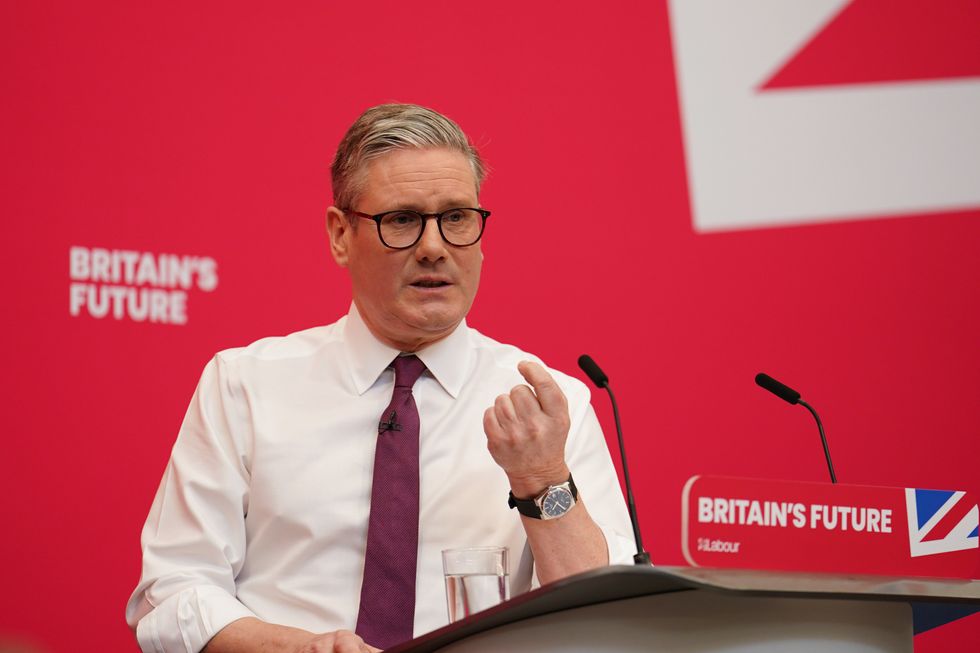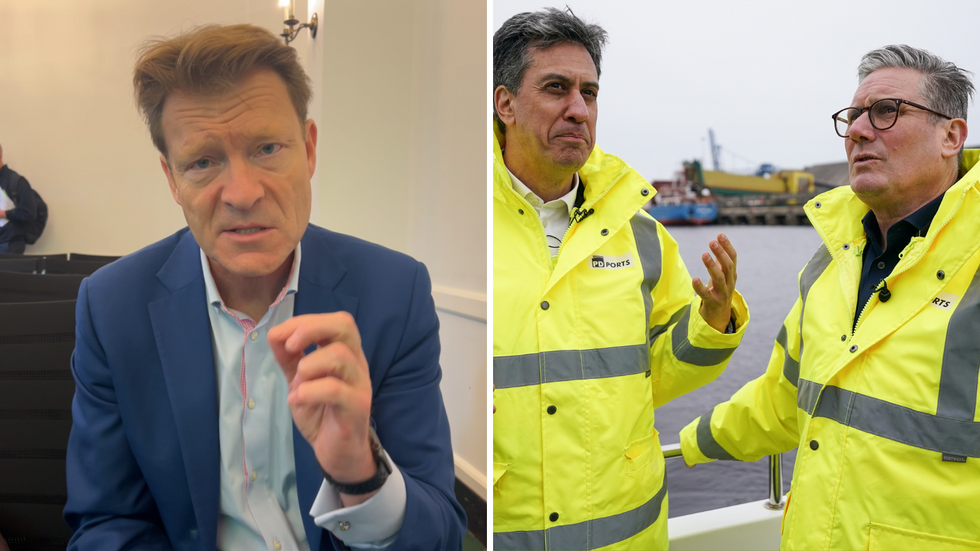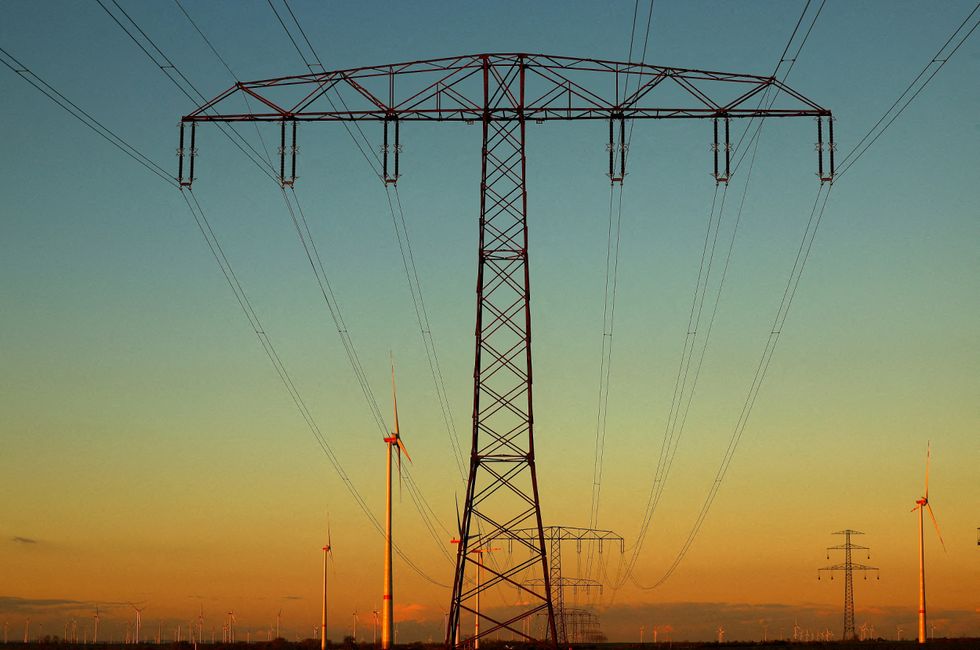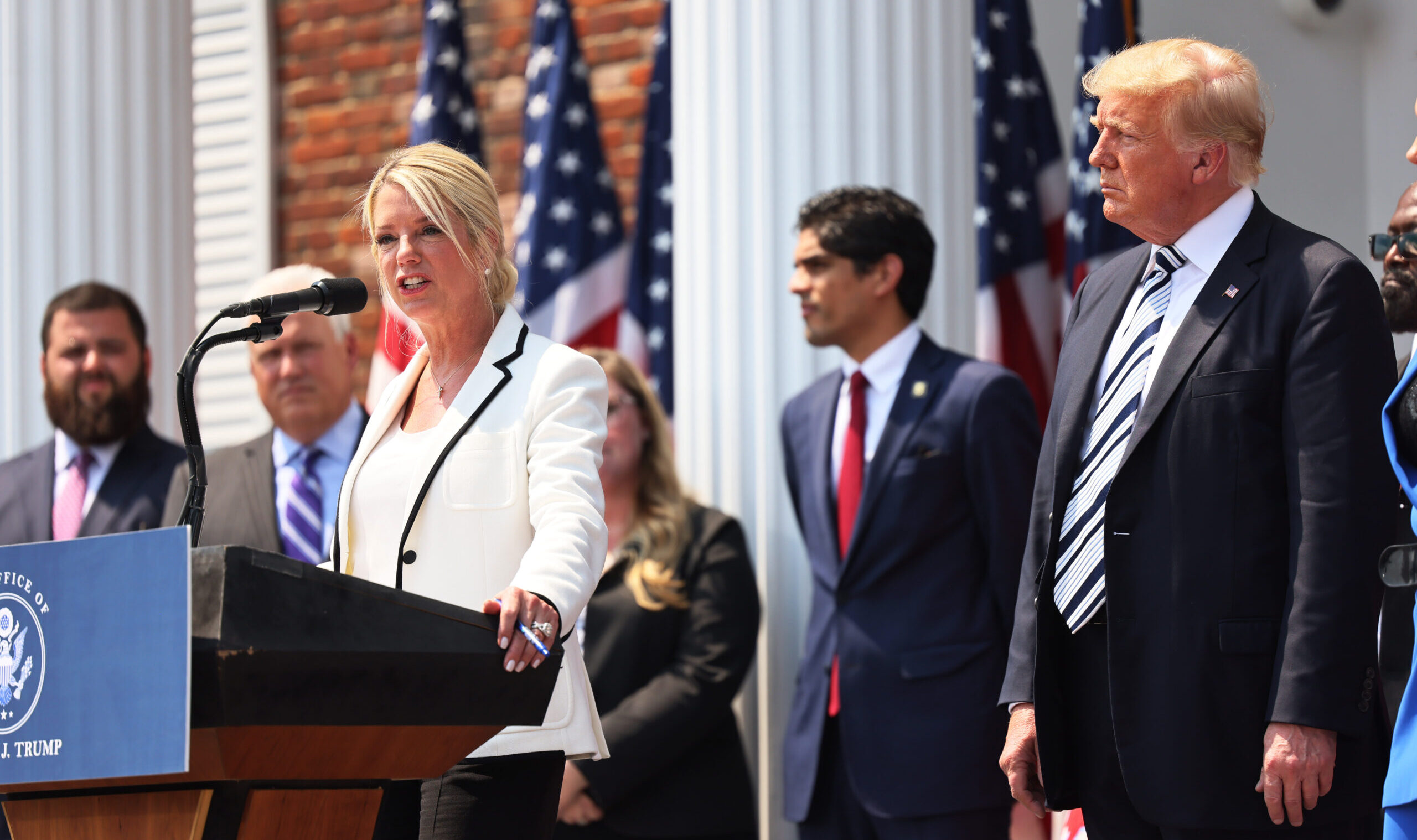Reform UK's Deputy Leader Richard Tice claims Sir Keir Stamer's "obsession" with reaching net zero will "kill jobs" and send energy prices soaring in Britain.
His blistering attack comes days after the Prime Minister announced at the COP29 climate summit in Azerbaijan that the UK aims to cut its emissions by 81 per cent by 2035.
This target updates the previous Conservative government's pledge of a 78 per cent reduction by 2035 and goes beyond the 68 per cent reduction target for 2030. This is part of the UK's commitment under the Paris Agreement towards reaching net zero emissions by 2050.
Proponents see these commitments as necessary steps towards combatting climate change, creating jobs in green sectors, and shoring up energy security.
Starmer has insisted his government will not "tell people how to their lives" but rather provide economic benefits through lower energy bills and new job opportunities.
Richard Tice claims Sir Keir Starmer's net zero goals will destroy Britain
GB News/Getty Images

Tice vehemently disagrees with this assessment, telling GB News that Starmer's net zero commitments will have ruinous effects.
He said: "Starmer's obsession with net zero will drive energy prices and bills up, not down. We will hold them to account for that. And he refuses to answer when the bills are coming down. They won't. At that point, I think everyone will say this whole net zero is killing jobs, killing industries, killing our economy, and it's got to stop."
How does Starmer plan to reach net zero?
A key part of Labour's election campaign was to transform Britain into a "clean energy superpower" by ensuring that the country's electricity grid is completely decarbonised by 2030.
The UK had originally set a target for 2030 under previous governments, but this was delayed to 2035 by former Prime Minister Rishi Sunak.
As part of this pledge, Labour reinstated the 2030 deadline for banning the sale of new petrol and diesel cars in the UK.
It has also set the same deadline for doubling the UK’s onshore wind capacity, tripling solar power, and quadrupling offshore wind.
This will require the rapid deployment of renewable energy sources, batteries, and new infrastructure, including 1,000 km of new power lines and pylons, and 4,500 km of undersea cables to connect offshore wind farms, according to a new report by the National Energy System Operator (NESO).
Even the GMB union, which GB News columnist Kelvin McKenzie affectionately calls Labour's "lapdog", has criticised these ambitious environmental policies, particularly the target for 100 per cent clean power by 2030, warning that such plans might lead to "power cuts and blackouts" due to their perceived unviability.
The main concern is that the cost of rapidly overhauling the current power system will get pushed onto consumers.
According to the NESO report, the UK will need to invest an average of £40 billion per year in energy infrastructure to achieve its clean energy targets by 2030.
The report suggests that this investment, equivalent to one per cent of GDP, can be achieved without increasing costs for consumers or compromising energy security.
A separate report by the conservative-friendly think tank Policy Exchange offers a more bleak analysis.
Utilising economic modelling from Aurora Energy Research, the report suggests that Labour's plan to decarbonise the grid by 2030 would require an additional investment of £116 billion over the next 11 years compared to a business-as-usual scenario.
Going net zero will require 1,000 km of new power lines and pylons, says NESO report
REUTERS
"Even if the funding were available, the rate of deployment reaches extreme levels, which are highly unlikely to materialise," the report states.
Shadow energy secretary Claire Coutinho claims Starmer's ambitious net zero targets will inflict "hardship" on the British people.
During energy questions in the Commons, Coutinho said making "already stringent carbon emission targets even higher" would require a "shift away from meat and dairy" and "less travel".
The Conservative MP claimed the approach would "see our reliance on Chinese imports - a country which is 60 per cent powered by coal - go through the roof".
In response, Energy Minister Kerry McCarthy said: "It's really important that we are stepping up and showing global ambition.
"Reaching net zero in this country and getting to clean power by 2030 is a massive opportunity - it is not a cost."

 By GB News (World News) | Created at 2024-11-14 17:36:36 | Updated at 2024-11-22 02:17:18
1 week ago
By GB News (World News) | Created at 2024-11-14 17:36:36 | Updated at 2024-11-22 02:17:18
1 week ago










